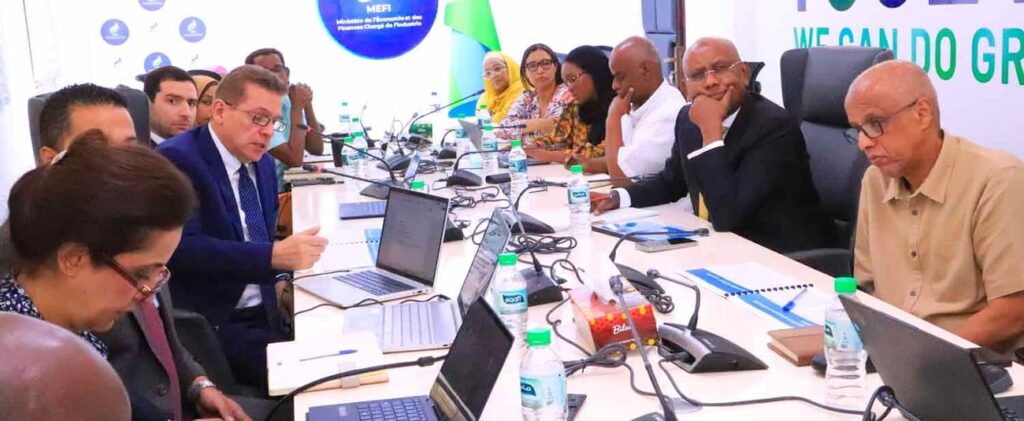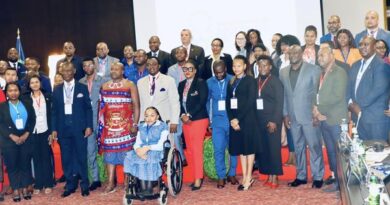AfDB Mission to Djibouti Strengthens Partnership and Advances Regional Integration
A week-long consultation mission led by African Development Bank (AfDB) Executive Director Khaled Sherif has reaffirmed the Bank’s robust partnership with Djibouti, with a renewed focus on regional integration, innovative development financing, and institutional capacity building.
Held from 3 to 10 October 2025, the mission sought to accelerate project delivery, optimise the Bank’s investment portfolio, and deepen socio-economic impact across key sectors.
During a meeting with Prime Minister Abdoulkader Kamil Mohamed, Sherif reiterated the Bank’s commitment to supporting initiatives that promote private sector growth, youth employment, and infrastructure development. Discussions also covered ongoing and upcoming projects in tourism, transport, energy, water, and telecommunications.
“Djibouti values its strategic partnership with the African Development Bank,” said Prime Minister Mohamed. “We look forward to strengthening this collaboration to deliver transformative infrastructure and drive sustainable growth.”
Sherif also met with the Minister of Economy and Finance, Ilyas Moussa Dawaleh, who serves as Djibouti’s Governor to the Bank. The two reviewed the AfDB’s current portfolio, exploring ways to enhance project execution, expand access to concessional and blended financing, and reinforce institutional capacity.
“Djibouti’s natural comparative advantage lies in its coastline of rare beauty, strategically positioned at the gateway to global trade,” Sherif noted, emphasising the country’s potential as a logistics and investment hub for the Horn of Africa and beyond.
Minister Dawaleh underscored the importance of inclusive growth, stressing that regional equity and spatial inclusion remain central to Djibouti’s national development agenda.
The Bank delegation further highlighted environmental sustainability, climate resilience, and inclusive development as key pillars guiding future cooperation.
In addition to high-level talks, the mission featured policy dialogues and technical workshops, engaging public institutions, private sector players, civil society organisations, and development partners such as the World Bank, European Union, and Tony Blair Institute. These sessions identified priority interventions to bolster governance, transparency, and private investment.
The mission concluded with a joint action plan designed to fast-track project implementation and unlock new opportunities for investment, inclusion, and regional integration. Both parties agreed on clear timelines for pilot projects aligned with Djibouti’s Vision 2035 and the African Development Bank’s Ten-Year Strategy (2024–2033).



